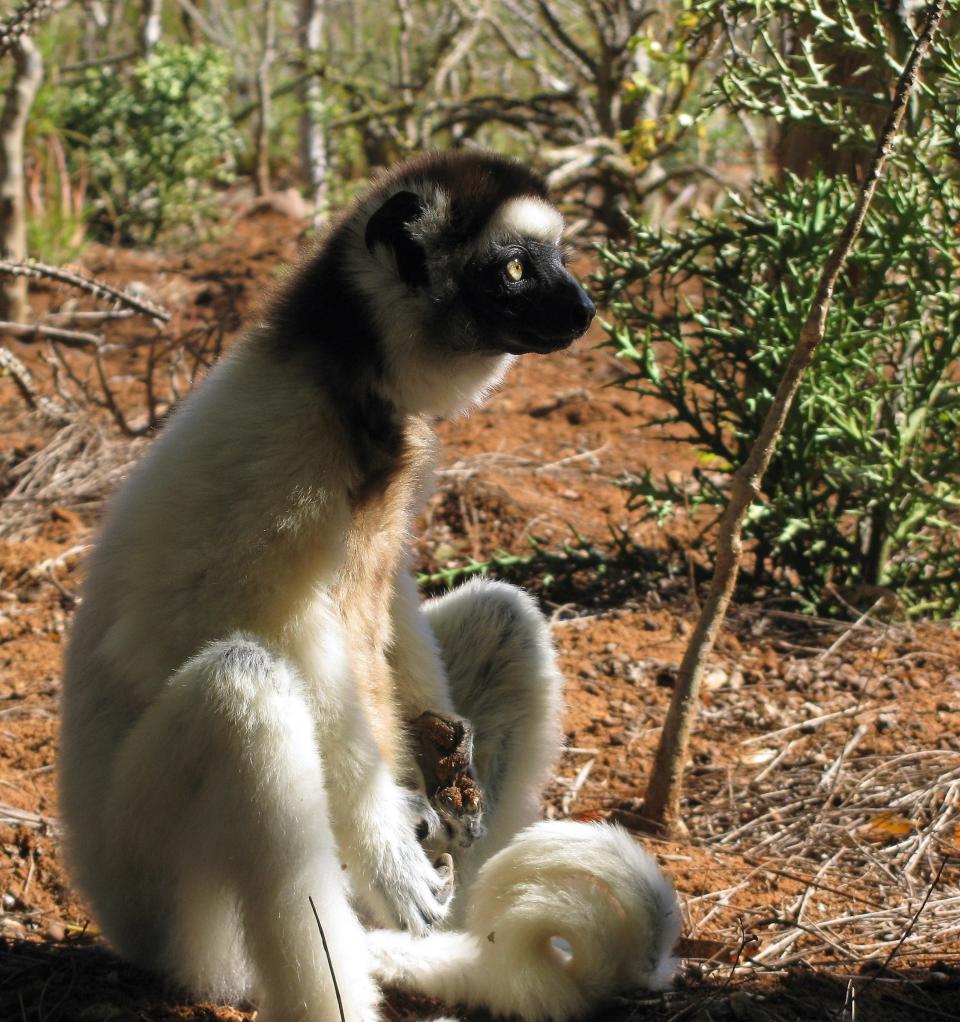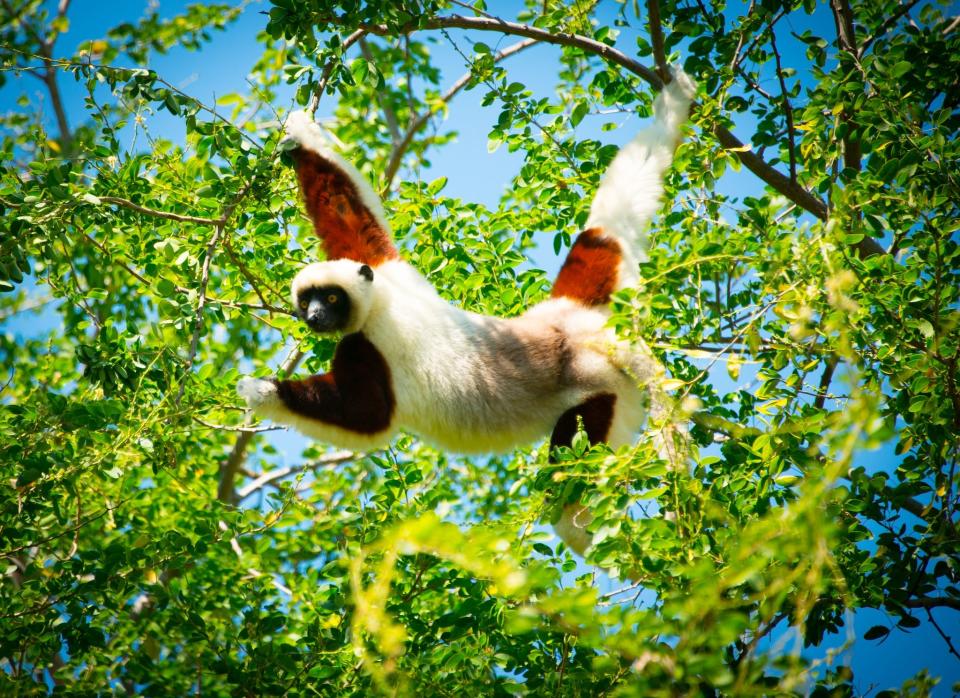Monkey see, monkey go: How climate change, deforestation are putting some primates in a bind
Some species of monkeys, lemurs and other primates may be leaving their leafy homes more often as the warming climate affects tree canopies in their forests, according to a new study by a group of more than 100 researchers.
Human activities that bring higher temperatures and deforestation send arboreal primates to the ground more often in Central and South America and Madagascar, increasing their risk of interaction with people and predators, the study reported.
That could ultimately, however, give them an edge over primates that can’t adapt as easily.
Primates already face “unprecedented challenges," researchers said, but the paper published Monday in the Proceedings of the National Academy of Sciences suggests they'll encounter additional burdens from climate change. It examines which traits help primates adapt to change.

A multifaceted diet and living in larger groups appear to give some species an advantage, said the study's lead author, Timothy Eppley, a postdoctoral associate at the San Diego Zoo Wildlife Alliance. While they adapt by dropping to the ground more often, other species do not and may need higher priority conservation efforts, Eppley said.
During 150,000 hours of observation, they studied 15 lemur species, and 32 species from four families that include howler monkeys, tamarins, capuchins and squirrel monkeys.
Putting together such a massive amount of information was “a huge job” by Eppley, said co-author Karen Strier, a professor in the University of Wisconsin-Madison’s anthropology department. Strier has studied the northern muriqui, a primate species in Brazil since 1982.
CLIMATE POINT: Subscribe to USA TODAY’s free weekly newsletter on climate change, the environment and the weather
Eppley started the project after noticing some species of bamboo lemurs in Madagascar spent more time on the ground, while the same animals in less-disturbed locations never descended.
Researchers found species in large social groups or in hotter places with less canopy cover might be pre-wired to adapt to change, Eppley said.
Primates that live farther away from roads and people spend more time on the ground than those living closer to people, which may suggest humans interfere with their natural adaptability, stated Luca Santini from Sapienza University of Rome, a senior scientist who collaborated on the study.

Many species are already burdened with living in fragmented and heavily disturbed environments with fewer food sources. The authors concluded an ability to eat other kinds of plants and not just fruit, and to spend time on the ground in areas where tree cover is sparse and temperatures are warmer, may help buffer species against extinction.
New lemur pups: Eight babies in two months: Endangered lemur species welcomes four new sets of twins at zoo
Other species, such as some of the lemurs in Madagascar, eat only fruit and need forest habitat, which is rapidly declining, Eppley said.
The world’s fourth-largest island, Madagascar has a population of nearly 28 million people. Forests and lands are being cleared for agriculture and also are battered by tropical cyclones, increasingly fueled by higher sea surface temperatures.
HUMANITY HEALED THE OZONE HOLE: Can we do the same for climate change?
But primates who leave the canopy face new predators on the ground, particularly feral dogs and cats. In Madagascar, he said, feral dogs and cats outcompete the island’s natural predators.
“It is clear that the current pace of deforestation and climate change puts most primate species in peril,” said Giuseppe Donati, a study collaborator at Oxford Brookes University.
Conservation organizations must come up with interventions such as wildlife corridors or relocations to maintain genetic diversity, Eppley said.
Primates have proven to be “incredibly adaptable, but they are being pushed and climate change is one of the many big threats, both directly and indirectly,” Strier said. “We really need to find ways to protect primates.”
Despite primates' ability to adapt, she said, "We can still push them into extinctionand there’s really no excuse for that.”
Dinah Voyles Pulver covers climate and environment issues for USA TODAY. She can be reached at dpulver@gannett.com or at @dinahvp on Twitter.
This article originally appeared on USA TODAY: Climate change, deforestation is increasing risks for primates: study

